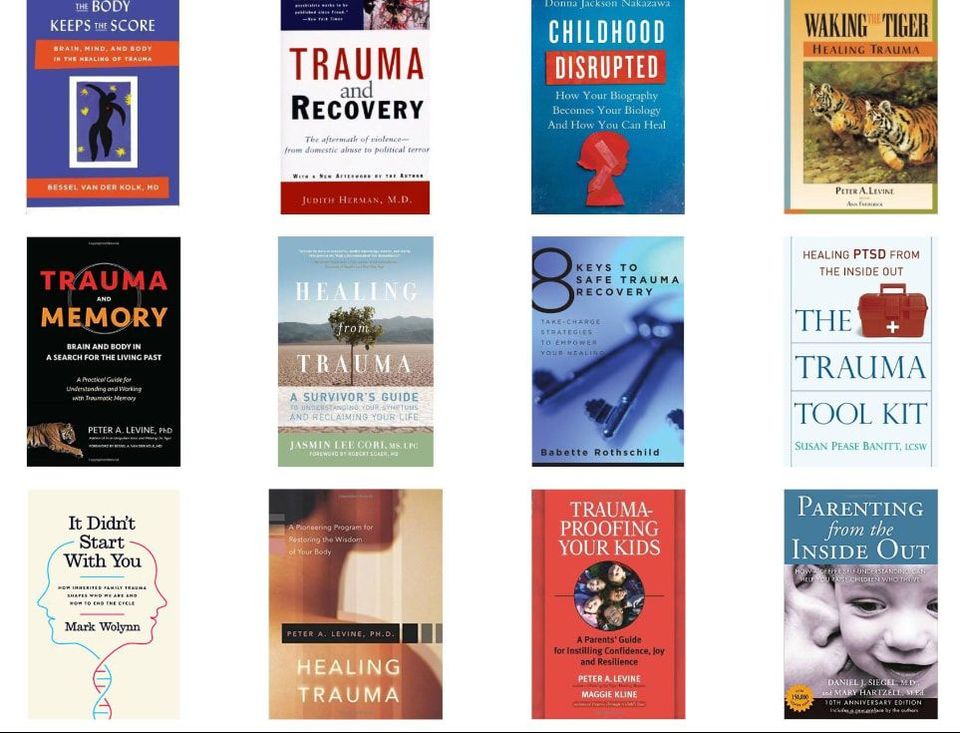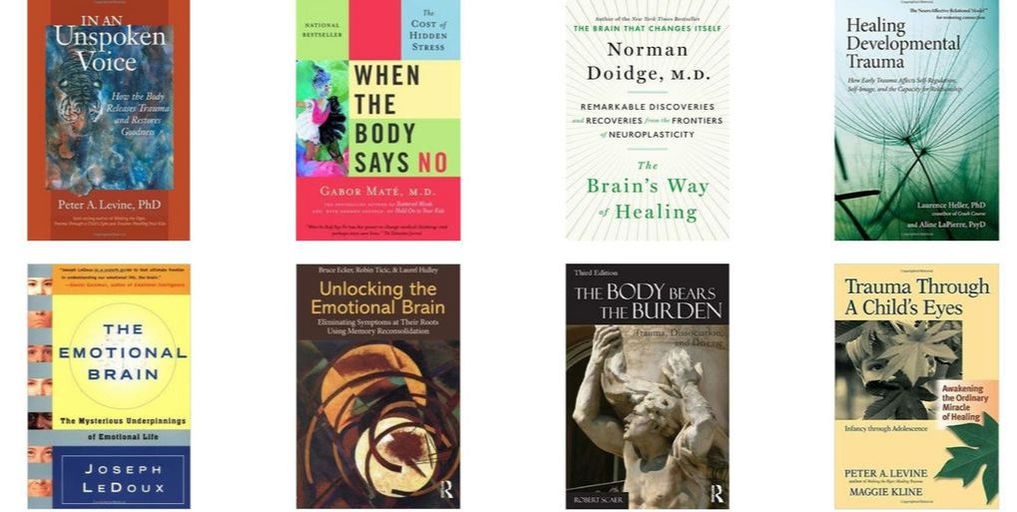Books, Articles, and Other Resources
Bonus Article: Hey Siri, did you break confidentiality, or did I? On cyber security in the therapy room (or why some therapists don't allow devices with open microphones in our therapy room)
Books
Sorry the images are not links.
Sorry the images are not links.

Some writings from me:Article, "How to Not (Even Accidentally) Be a D**k When Your Person Has Anxiety" by Margaret Howard:
https://www.huffingtonpost.com/entry/how-to-not-even-accidenta_b_9387296.html I wrote this one after many requests from clients for something they could give their partners and others to read in order to understand what helps and what doesn't help when a person is experiencing anxiety. A few other bits by me on Huffington Post: https://www.huffingtonpost.com/author/margaret-howard For a steady stream of shares of materials, research, etc., follow me on Facebook. For original nature photography, inspiration for other amazing trauma therapists, and other musings, follow me on Instragram @margaretthewild. |
For Parents (as well as former children): Dr. Bruce Perry on Attachment and Childhood TraumaPerry, B.D. and Hambrick, E. (2008), “The Neurosequential Model of Therapeutics (NMT),” in Reclaiming Children and Youth, 17 (3) 38-43; and Dobson, C. & Perry, B.D. (2010), “The role of healthy relational interactions in buffering the impact of childhood trauma in “Working with Children to Heal Interpersonal Trauma: The Power of Play,” (E. Gil, Ed.) The Guilford Press, New York, pp. 26-43 Both at: http://childtrauma.org/nmt-model/references/ Bruce Perry MD, Daniel Siegel MD, et.al, “Trauma, Brain & Relationship: Helping Children Heal,” -- introductory video on Attachment Disorder and development trauma. Copies at www.postinstitute.com/dvds. www.youtube.com/watch?v=jYyEEMlMMb0 Perry, Bruce D., MD, “Born for Love: The Effects of Empathy on the Developing Brain,” Annual Interpersonal Neurobiology Conference “How People Change: Relationship & Neuroplasticity in Psychotherapy,” UCLA, Los Angeles, March 8, 2013 (unpublished). Library of articles on interventions, trauma, brain development: https://childtrauma.org/cta-library/ Training in NMT Method and Somatosensory Regulation, Power of Rhythm — Individual and Site Training Certification Programs, DVD/streaming training, and online training: http://www.ctaproducts.org Dr. Perry’s latest research and key slides: “Helping Children Recover from Trauma,” National Council LIVE, National Council on Behavioral Health, Sept. 5, 2013 at www.thenationalcouncil.org/events-and-training/webinars/webinar-archive/ (scroll down to Sept. 2013.) Dr. Perry’s YouTube channel with educational videos in depth: https://www.youtube.com/channel/UCf4ZUgIXyxRcUNLuhimA5mA?feature=watch Born for Love – In this book, Dr. Bruce D. Perry and journalist Maia Szalavitz argue that empathy, the ability to recognize and share the feelings of others, is a crucial human quality that underlies much more than love, friendship and parenting. CTA offers a free Study Guide to accompany this book here. The Boy Who Was Raised as a Dog – “A profound lesson in simple humanity.” – O, Oprah’s Magazine. In this deeply informed and moving book, Dr. Bruce Perry dramatically demonstrates that only when we understand the science of the mind can we hope to heal. CTA offers a free Study Guide to accompany this book here. Purchase the New and Updated version of The Boy Who Was Raised as a Dog Infant and Early Childhood Mental Health: Core Concepts and Clinical Practice – In 20 engaging chapters by renowned practitioners and researchers in the field, the book covers concepts from the nature of infant emotional and brain development to the practice of neurologically and relationally based therapies, and explores topics from child trauma to autism spectrum disorders. Brief Reflections on Trauma, Childhood, and Society, Bruce Perry www.amazon.com/gp/product/B00E7A3FTW/ref=oh_aui_d_detailpage_o00_?ie=UTF8&psc=1 |
